What Are You Reaching For?
Do you feel alive and vibrant? Or are you living in a fog, feeling detached, numb, shut down, or apathetic?
How have you noticed these states affect your relationship to food; if and when you reach for it, the intensity or impulse of the reaching, and the degree to which you feel calm or chaotic in the reaching?
The Act of Reaching
The act of reaching for things in life – whether it's a sweet treat, a sense of belonging, an identity, a lover, taking that trip, pursuing a neglected passion, or internal peace and ease – can be really gratifying. But it feels best - we feel most in integrity with ourselves - when we reach from an empowered place and are:
Alert and tuned into our life force energy and intuitive knowing of what's real inside of us and ready to be tended to
Awake enough to identify and act on our desires. To own the wanting.
When we're in a collapsed or numb state, reaching becomes a mindless, compulsive habit. Our behaviors feel formulaic, stale, and restricted; stuck in a record groove and devoid of choice, agency, and a clear understanding of ourselves. When we do finally break out of that rote state and give ourselves permission to reach (yet still lack awareness of what we truly need) the energy behind it may feel frantic, unhinged, and confusing. We judge ourselves for having too little willpower, and we retreat once again to the perceived safety of restriction and containment.
Own the Wanting + Trust the Knowing
True freedom and safety in our relationship to food lies in our opening. It lies in our:
willingness to turn toward ourselves, eyes wide open
courage to seek to understand what propels our reaching; what we really crave, hurt, and long for that food (or anything else) only temporarily relieves us from
capacity to acknowledge and trust the soul's desires and own this deeper wanting
It's scary, I know. To take this leap of faith. To listen, trust, and respond to that quiet voice inside — our intuition, the body's wisdom. It's a different way of knowing ourselves that doesn't necessarily sync up with the mind's rational, logical knowing. But when we over emphasize logic - when we hide in the safety of the familiar and habitual - our spirit weakens. And we miss out on what it wants us to know, the life force it has to offer us. We miss out on seeing ourselves fully, expressing fully, and living fully.
This is where my clients and I meet. They want to live fully, consciously, and with ease; free from the incessant mental chatter and knee-jerk reaching that leads to dissatisfaction and low self-worth. They want to see themselves more clearly and understand their emotional patterns and food habits better so they know what they're truly reaching for and ways to calm the anxiety and dysregulation. They sense something is shut down or misaligned inside of them and they understand that turning to food (or indulging other compulsive habits) is an attempt to:
correct this misalignment
release pent up energy
quiet the chatter
and/or bring sensation and aliveness back to a numb state
What Our Reaching Says About Us
I see it time and again in our work together. As my clients move along their arc of healing and begin turning toward themselves - being with the discomfort and tuning into their quiet knowing - they become less burdened, stuck, and beholden by food. They liberate themselves from the idea that food (and/or their body) is the problem. This allows them to see how reaching for food has compensated for the neglected parts of themselves. The parts of them that hold:
Core longings and desires
Long-disowned creative impulses
Unresolved pain
Untapped potential
An inner resolve and strength
A vibrant life force energy
When we see ourselves at this depth, it satiates us in a way food never can. Over time, acknowledging and validating these neglected parts of us leads to:
Greater self-awareness
Agency of choice and a fuller expression of ourselves
An inner stability and self-assuredness that can only come from acting in integrity with ourselves
An opportunity to use food as a satisfying tool for nourishment and pleasure rather than punishment, abuse, or an outlet to discharge uncomfortable emotions.
Steps Forward
Once we understand how reaching for food is our nervous system’s (quite genius) attempt to soothe these neglected parts of ourselves, it leads to more questions:
How do I get in touch with that quiet voice inside, our deepest knowing?
What has blocked or silenced this knowing for all these years?
What are the practical ways I learn to recognize, trust, and act on it in service of liberating myself from mindless, compulsive patterns that keep me stuck with food or at any number of crossroads in life?
These are the questions we’ll explore in the next article. Stay tuned!

